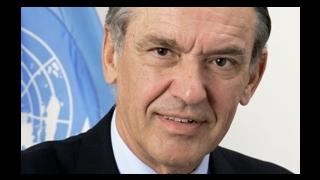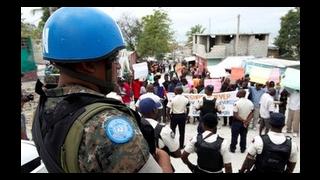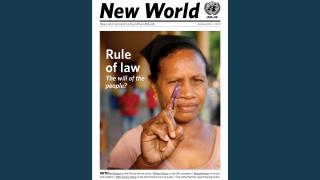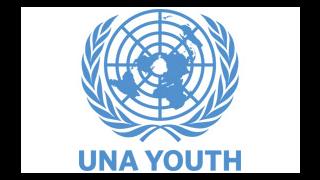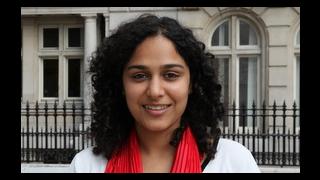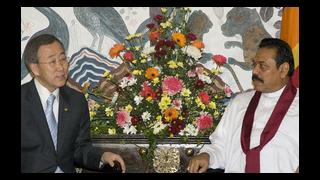
One of the most difficult obstacles to the spread of the rule of law is that of establishing it in states where violent conflict has led to deeply engrained lawlessness. Where government institutions operate without proper legal constraints, a lack of trust between the state and its citizens may lead to a relapse into violent conflict. The UN has therefore placed the rule of law at the heart of its post-conflict agenda for ‘positive peace’, which is designed to build stable states for the long term.
The emphasis on positive and sustainable peace was one of the key reasons for the establishment of the UN Peacebuilding Commission (PBC). The PBC was established as an advisory subsidiary body of the Security Council following the 2005 World Summit, which also saw agreement on the responsibility to protect (R2P) and the establishment of the UN Human Rights Council. The low profile of the PBC in comparison to these other Summit achievements seems at odds with its potentially vital role. Given that half of post-conflict countries relapse into armed violence within five years, the need for an effective peacebuilding body could not be clearer.
The PBC’s mandate reflects the complexity of post-conflict recovery, and includes:
- bringing together all relevant peacebuilding actors
- marshalling resources
- advising on post-conflict peacebuilding and recovery
The PBC is currently engaged in post-conflict work in six countries: Burundi, Central African Republic, Guinea, Guinea-Bissau, Liberia and Sierra Leone. In these countries, it works alongside UN country missions, host governments, regional organisations and civil society to lay foundations for sustainable peace.
But what has the PBC done to promote the rule of law and what challenges does it face?
Perhaps the most significant aspect of the PBC’s work on the rule of law is the development of the legal accountability of state institutions, through initiatives such as security sector reform. Security services which operate with impunity increase the chances of human rights abuses and the likelihood of citizens taking security into their own hands. To prevent this, the PBC helps states implement measures designed to ensure that their security services are protective rather than predatory. In Sierra Leone, the PBC assisted the government in producing an action plan for professionalisation and civilian oversight of the military and police.
The PBC has also dedicated time and resources to the promotion of judicial independence. Ensuring that the law is applied impartially is a vital confidence-building measure in post-conflict countries. For example, the PBC played a key role in negotiating commitments from the government of Liberia to establish strong mechanisms for judicial oversight and accountability.
However, the PBC faces a number of challenges. Firstly, it is argued that the PBC suffers from a lack of commitment from member states, particularly among the five permanent members of the Security Council. The Council has delayed reviews of PBC reports and failed to hold formal discussions on the PBC’s five-year review. Closely related to this is the issue of funding. The PBC must raise funds for its operations on a case-by-case basis – a task made significantly harder by the Security Council’s apparent indifference and the PBC’s relative lack of status. Due to the PBC’s difficulties in mobilising funds, countries have voiced complaints that they have received less support from the body than they had anticipated.
It is also widely argued that the PBC has yet to be properly integrated into the UN’s multi-faceted post-conflict operations. Without proper codification, there is a tendency for poor communication between the various UN actors on the ground and the development of parallel or even competing operations. This approach seems unnecessarily wasteful and highlights the need for clarification of the PBC’s place in UN structures.
Despite these teething problems, the PBC’s work on the rule of law provides an example of the tremendous potential of a dedicated UN peacebuilding body. It is right that the UN should seek to take the lead on peacebuilding, as it is uniquely placed to coordinate the complex web of post-conflict activities, and to act as a neutral arbiter in volatile situations. Moreover, the PBC could relieve the Department of Peacekeeping Operations of some of its own peacebuilding responsibilities.
However, if it is to be effective, the PBC must be given a more prominent role and a more clearly defined mandate. This would mean greater commitment from member states, sufficient funding and full integration of the PBC into the array of UN bodies that operate in the wake of armed conflict. These measures have the potential to significantly enhance the UN’s capacity to assist some of its most troubled member states in implementing the rule of law as part of a just and lasting peace.
Calum MacLure is UNA-UK’s Communications and Social Media Intern






